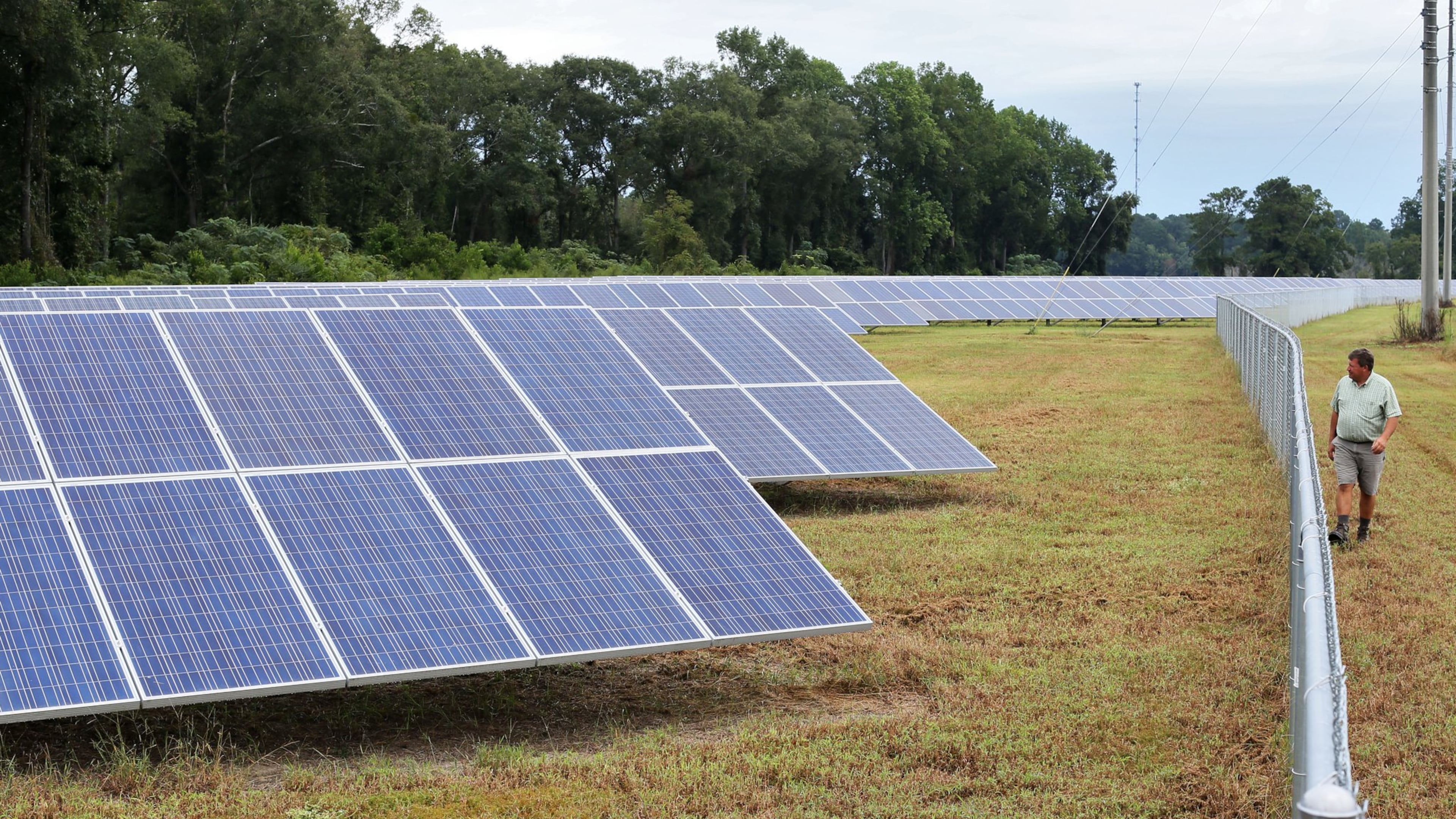Supply chain issues delay Georgia Power solar projects by a year

Georgia Power says nearly 1,000 megawatts of planned solar installations are now delayed by a year, as supply chain issues and a federal investigation into Chinese panel manufacturers hamper the company’s transition to renewable energy.
The affected projects include two solar panel installations planned in South Georgia near Tifton and Bainbridge, and three others on the outskirts of Augusta and Athens.
Last month, state regulators at the Georgia Public Service Commission (PSC) approved a request from Georgia Power to bump the required service start date for all five projects from late 2023 to late 2024.
Georgia Power says it has about 3,000 megawatts of solar online today, so the delayed projects would be equal to about a third of the company’s current solar capacity. While solar represents 14% of Georgia Power’s overall power generation capacity today, the company has plans to invest heavily in solar, as it shutters its coal plants.
The company says about 7,500 megawatts, or 35% of its overall energy supply, will come from the sun by 2030. The delayed installations would represent more than 13% of Georgia Power’s expected solar capacity.
Aaron Abramovitz, Georgia Power’s chief financial officer, said that the rates that customers pay for power would not be affected by the set back. He also said he was confident that the company could still achieve its greenhouse gas emissions reduction targets.
Abramovitz said that supply chain issues are mostly to blame for the slowdown, but that a U.S. Commerce Department investigation into Chinese solar manufacturers’ efforts to duck tariffs is also contributing. The investigation has drastically slowed the arrival of panels for utility scale installations.
Last month, the Solar Energy Industries Association — an industry trade group — said it was slashing its solar installation forecast for 2022 and 2023 by nearly half because of the investigation and warned that the industry could shed 100,000 jobs as a result.
Sylvia Leyva Martinez, a senior analyst at the energy research and consulting firm Wood Mackenzie, said solar project delays will last at least until later this year, when the federal probe is expected to wrap up.
The news comes as Georgia Power seeks PSC approval of its Integrated Resource Plan (IRP), the company’s 30-year plan for supplying electricity to its customers.
PSC Chairman Tricia Pridemore blamed delays on the Biden administration.
“The Commission is certainly concerned about supply chain issues negatively affecting solar energy,” Pridemore said in a statement. She said Washington needs “to account for export issues until American solar manufacturers catch up.”
Hearings over the IRP began last month. The company has asked regulators for permission to shutter all but one of its coal-fired units by 2028. Some commissioners expressed interest in leaving two of the coal-fired units at Plant Bowen in Cartersville open beyond their planned sunset dates, as an insurance policy in times of crisis.
Abramovitz said he did not expect solar troubles to shift closures for Georgia Power’s remaining coal plants. However, the decision is up to the PSC.
Asked if solar headwinds could delay planned closures of Georgia Power coal plants, Pridemore said any action to offset the solar delays would not be final until the commission approves the company’s IRP.
The next hearings on Georgia Power’s energy plans are scheduled to begin May 24.
Editor’s note: This story has been updated to correct the percentages of Georgia Power’s current and projected generation capacity from renewable sources.
More Stories
The Latest


